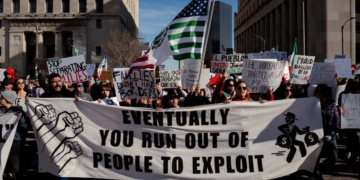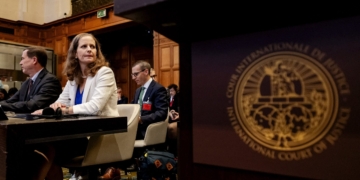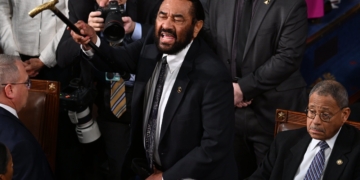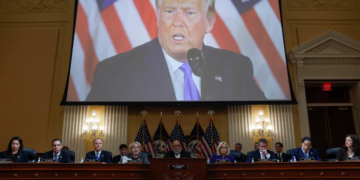In an unprecedented move, the U.S. federal government has announced the layoff of 300,000 federal employees, triggering political outrage, economic uncertainty, and fierce partisan battles. This large-scale workforce reduction is being described as the biggest in modern American history, with direct implications for the US economy and the upcoming presidential election.
The decision, reportedly backed by Donald Trump and his allies, has been justified as a cost-cutting measure to address ballooning federal expenditures. However, opponents argue it is a politically motivated move aimed at restructuring the government in a way that benefits certain states and industries.
Political Repercussions
The layoffs have already become a central issue in the Breaking News cycle, with Fox News commentators emphasizing the need for a leaner, more efficient federal government. In contrast, progressive voices are calling the decision reckless, warning it will destabilize public services and disproportionately hurt working-class families.
Jesse Watters has framed the move as a bold and necessary action to curb federal bureaucracy. Meanwhile, critics see it as a targeted attack on civil service professionals, especially in traditionally Democratic states.
Economic Fallout
Experts warn the layoffs could lead to a sharp decline in consumer spending in states with a high concentration of federal jobs, potentially triggering localized recessions. Economists also predict disruptions in key federal services, from transportation safety to environmental regulation.
This economic uncertainty could have ripple effects in financial markets, with investors closely monitoring market trends to assess the impact on growth and employment.
Electoral Impact
Political strategists believe the decision could significantly influence voting patterns in the upcoming election. Swing states with large federal workforces, such as Virginia and Pennsylvania, may see shifts in voter sentiment depending on how the layoffs affect local economies.
Trump supporters argue that this move showcases his commitment to fiscal discipline, while opponents say it exposes an indifference to the livelihoods of everyday Americans.
Public Response
Protests have erupted in several major cities, with union leaders vowing to challenge the decision in court. Social media is flooded with personal stories from affected employees, sparking nationwide sympathy and fueling the political debate.
The Road Ahead
Congress is expected to hold hearings on the mass layoffs, and legal challenges are likely to delay the implementation of certain aspects of the plan. As the political battle intensifies, the issue is poised to remain a dominant topic in the national discourse for months to come.
Whether the move will strengthen Trump’s political brand or backfire remains one of the biggest unanswered questions in American politics today.













